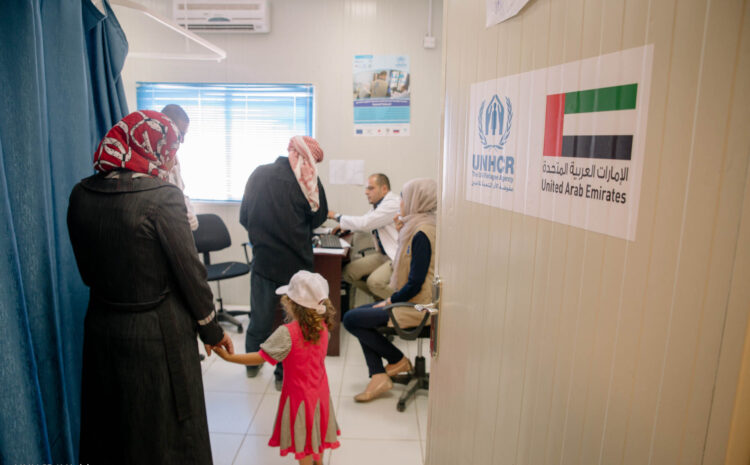
Earlier this week, as part of a generous USD 5 million donation from the Government of the United Arab Emirates, UNHCR announced that the implementation of the donation had commenced.
The UAE earmarked USD 3 million for water, sanitation and hygiene (WASH) and USD 2 million for health. The health portion will run until the end of this year and the WASH portion until April 2015.
The generous grant is enabling UNHCR to strengthen the provision of essential health services for Syrian refugees in Azraq and Zaatari camps in the form of primary health care, mental health, nutrition, rehabilitation and reproductive health services.
The project is also addressing some of the growing challenges related to providing dignified sanitary conditions in Zaatari camp through drainage and waste water management, proper disposal of medical waste, rodent control and a topographic survey all of which aim at considerably improving overall WASH services in Zaatari camp.
“Clearly, essential health services and the improvement of water and sanitation facilities in Za’atari are a priority especially given the number of beneficiaries at present and the protracted nature of the current situation,” said Imran Riza, UNHCR Regional Representative to the GCC Countries.
It is expected that some 115,000 Syrian refugees in Jordan will benefit from these two projects.
Za’atari camp has offered protection and assistance to more than 400,000 Syrian refugees since its establishment on July 28th 2012.
Underscoring the timeliness of the UAE contribution, Riza noted that “the needs are enormous and it is only through strong partnerships, such as the one we enjoy with the United Arab Emirates, will we be in a position to adequately address the mounting needs of this increasingly protracted population of refugees,” he added.
In late July, UNHCR and the Ministry of International Cooperation and Development (MICAD) signed two cooperation agreements formalizing the grant.
Jordan is home to some 610,000 Syrian refugees. There are more than 90,000 Syrian refugees in Zaatari and Azraq camps.
Regionally, it is expected that the total registered Syrian refugee population stands at almost 3 million.